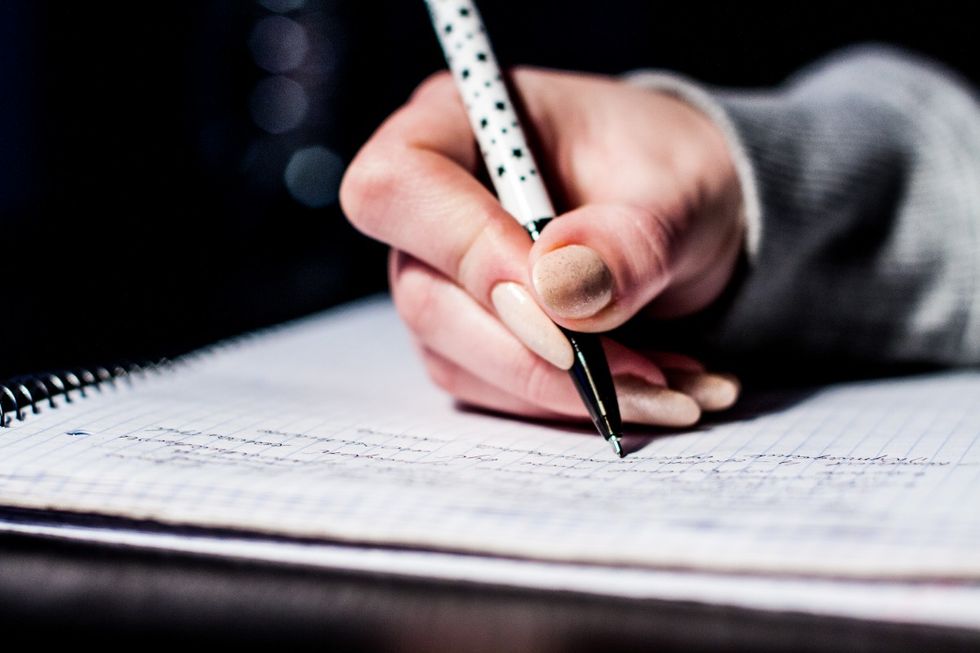Once upon a time, there was a little girl who loved to color but hated coloring. She tried as hard as she could, but no matter what she did, she couldn't color inside the lines. However, she did love a big, beautiful blank piece of paper, one that she could draw all over. As some of you may have guessed, that little girl was me.
As I grew older, my little brain was given another challenge: I went to pre-school in Arabic, but I attended first grade in English. The switch in writing direction really messed with me, and spelling was a very painful struggle. I'd write my J's backward and I'd see "saw" on the page and I'd read it as "was".
I eventually managed to learn how to read, but writing was an uphill battle. My hands would cramp if I wrote for any length of time, and sentence formation eluded me.
When I was twelve, dysgraphia popped up on my parents' radar through one of my teachers, and it made my entire world make sense. Dysgraphia is a learning disorder where children struggle with expressing themselves in writing. For years I'd struggled with writing, drawing, and other fine motor skills.
Writing especially was a challenge. My handwriting was atrocious - I couldn't make my letters uniform, and I had a lot of trouble with spelling and grammar. In the span of half an hour trying to write an essay, I'd maybe get a few sentences down if I was fully concentrating. I'd been a voracious reader for many years, and I could articulate myself verbally very well for my age, but you couldn't see that in my writing.
We sprung into action immediately. I was allowed to record my voice and then transcribe what I'd said to write my essays, and I eventually became a competent enough typist that we switched to that. I had to write in a journal for a set amount of time every day, and that time slowly increased.
My parents encouraged my drawing and I started doing more hand-crafts. It was a slow and painful process, but eventually, I was able to put my thoughts onto the page. Somehow, I managed to even become more comfortable with typing out my thoughts than I am with speaking them.
Ironically, I eventually became a good writer, and somehow I managed to completely forget about my dysgraphia. It hadn't disappeared, but I transcended it, worked around it, and it stopped mattering. I write, draw, and do other fine-motor tasks fairly well now. Most people, if they've heard of the learning disorder, likely couldn't recognize it in me anymore.
Toward the end of high school, my mom and I had a conversation about it where I was reminded that it was a part of my life.
Dysgraphia is a life-long learning condition, and being reminded of that helped me give myself grace in areas that I'd still been struggling in. For example, it isn't merely procrastination when I get anxious staring at a blank page to write an essay. It's something that I genuinely have to overcome, and often getting started is the biggest challenge.
There are days when I get frustrated at my hands for not drawing the lines the way I want them to be. I'm grateful for my keyboard because typing makes the process of getting what's inside my head onto paper infinitely easier (though some days I do just need a pen and paper to think properly).
Overall, I'm very grateful that I was given help and resources to overcome and live well with dysgraphia.






















